Women play an integral role in the growth and diversity of the food industry. According to the National Restaurant Association, the number of women-owned establishments has increased by over 50 percent in the last 10 years, and beyond that, 2016 was the first year there were more women enrolled at the Culinary Institute of American than men.
But there is still a lot of work to be done. A study by Glassdoor showed that female chefs get paid 28.1 percent less than men and sexual harassment is rampant. Many female chefs are passed over in favor of their male counterparts. According to an Eater article from October 2017, just eight percent of the 2018 Michelin-starred restaurants in New York Cities had female head chefs, while San Francisco and Chicago were at 20 percent and D.C. at zero.
But women across the industry are facing that status quo head on, and working to change the culinary institute in personal, important ways, whether it is with food itself, businesses, or magazines. RealClearLife spoke to three women who are turning the tables on the culinary industry.
Krimsey Ramsey runs Los Angeles’s only vegan cajun restaurant, Krimsey’s, while Amanda Cohen is the owner-chef of Dirt Candy, an award-winning vegetable restaurant in New York City. Wen-Jay Ying’s CSA is changing the way CSAs work and bringing New Yorkers local, sustainably grown food straight from a farm, as well as eggs, meat, fish and more.
According to Forbes, sales of plant-based food in the U.S. went up by 8.1 percent in 2017, topping $3.1 billion, according to research carried out by Nielsen for the Plant Based Foods Association (PBFA) and the Good Food Institute. Bill Gates, Leonardo Dicaprio, and Twitter co-founders Biz Stone and Evan Williams have all invested in the plant-based burger company Beyond Burger as competition to make tasty, not-real-meat treats. Vegan cheese and plant-based milk sales dramatically increased last year, according to Forbes, which writes that the “plant-based revolution is here to stay.”
Krimsey Ramsey, 31, Owner and founder Krimsey’s in Los Angeles
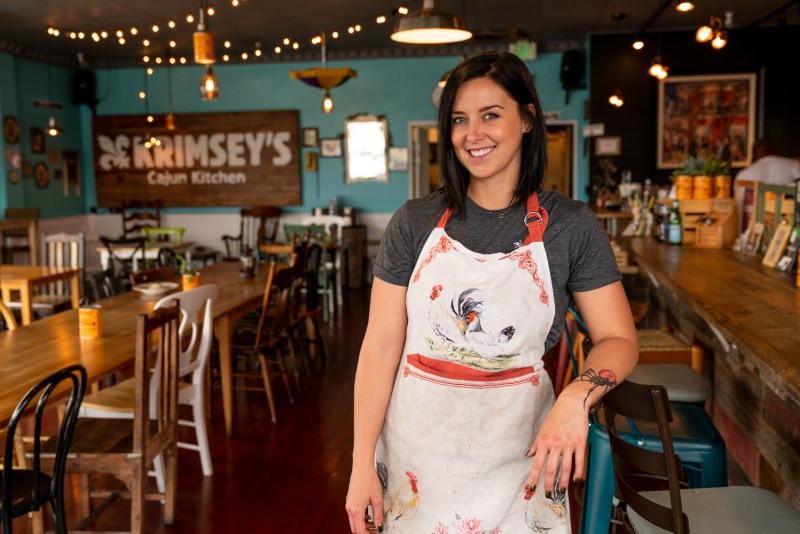
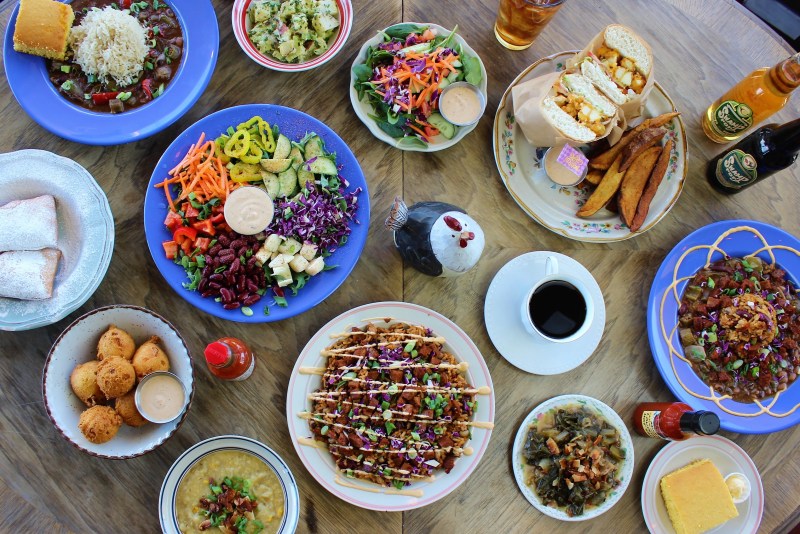
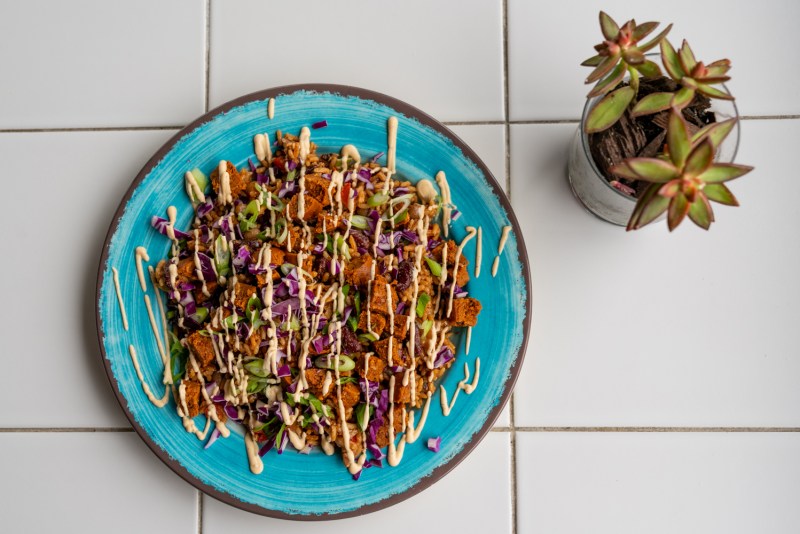
Krimsey Ramsey was born and raised in Baton Rogue, Louisiana, though her family is originally from Slaughter, La., something Ramsey thought was “kind of ironic.” Cooking hasn’t always been her forte, and she grew up in a big family with not a lot of home-cooked meals. She went on to get her Bachelors degree in Petroleum Engineering from Louisiana State University, and then her M.B.A. in Finance from Texas A&M, Corpus Christi. She had always bene interested in science in general, especially the science of the Earth, and was drawn to the idea of being able to touch and learn about all the layers of our world.
But the industry did not align with her values, and her mind started drifting towards the idea of quitting and finding something different.
“It was a very male-dominated industry, which was fine, I don’t mind working with men, but I found myself limited by not being able to break through the glass ceiling and have people take (me) seriously,” she told RCL during a phone interview.
There was also the deeper problem that the job revolved around drilling holes and extracting a substance that “gets burned and negatively affects the planet,” she said. It all came to a head when she was working on a project that was proposing to run a project on wind power. It got shut down because she was told they “don’t work with wind, we don’t have the resources.”
On top of that, Ramsey was getting divorced from her high school sweetheart, and the biological parents of her 14-year-old foster daughter decided they wanted her back.
“I had no ties and no responsibilities, there was never going to be an easier time to try,” she told RCL. So she packed up her two-door muscle car, put her dog in the front seat, and started driving to Los Angeles.
At first, she wasn’t sure if it was the biggest mistake of her life or the best thing she’d ever done. But then, “I remember feeling really free,” she said, in terms of the drive across the country. It was a breakthrough moment for her, realizing that she could do whatever she wanted and there was nothing stopping her.
The key for her in starting Krimsey’s, which is LA’s only vegan cajun restaurant, was to take slow steps. She started doing pop-ups and catering and began writing a cookbook. She found a really modest space in a un-trendy part of down and opened on a shoe-string budget. A few months later, she was able to relocate to a bigger place. At first, she was putting in 20 hour days, every single minute she was awake was spent trying to “get this thing off the ground.”
“There are days where I would fall asleep crying and wake up crying, I was just so tired,” Ramsey said.
For now, her restaurant management team is 100 percent female, and 100 percent vegan, and her kitchen is soy free. Ramsey herself became vegan when she was 20, living in Louisiana.
“At the time it was really difficult, I had never met a vegan and had to learn it all myself and explain myself to a lot of people, you couldn’t just say, ‘Do you have a vegan option?’ because they would be like, ‘What is that?’” she said.
The biggest misconception about veganism in Ramsey’s mind is that vegan food is flavorless. She said it is just like meat — it is all about bases and spices and how you’re cooking it. Ramsey comes up with the all the recipes for Krimsey’s, and they are all inspired from her upbringing. She also has a cookbook.
Ramsey told RCL during a phone interview that the decision to start Krimsey’s was one of the “top five decisions of my life, among getting laser eye surgery and going vegan.”
“Moving to LA and trying all this has changed my life in a huge way and opened up a lot of new opportunities, even outside of the business,” she said. “Living in a city like Los Angeles has really opened my eyes to a lot of things I never thought about. Every day I wake up and I am like, ‘I am in LA.’”
Amanda Cohen, chef-owner of Dirt Candy, in New York City
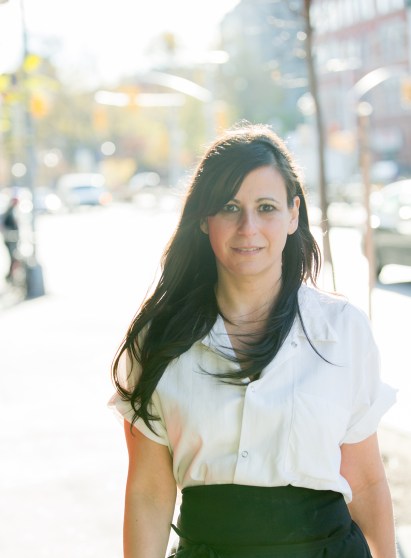

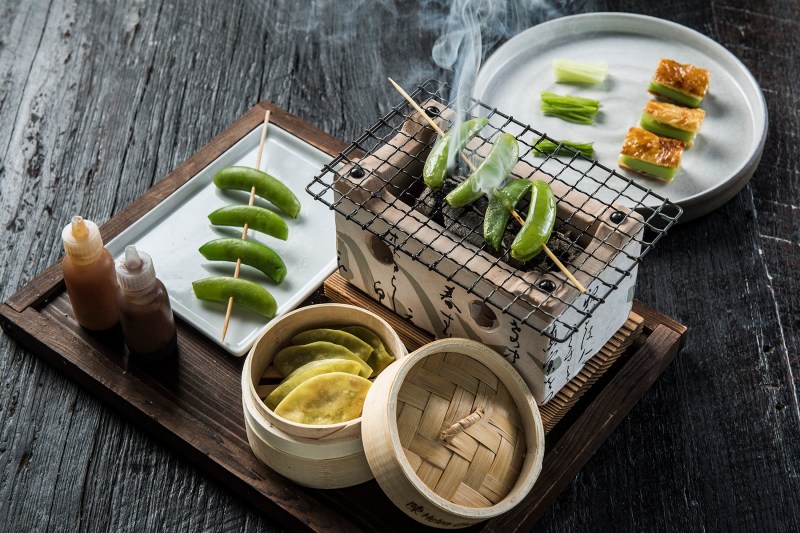
Amanda Cohen is chef and owner of Dirt Candy, located in New York City. Cohen was born in Ottawa but grew up in Toronto and told RCL that she was never that interested in cooking. But after she graduated university, she visited Hong Kong for a while and that “really opened my eyes to what was out there.” When she came back to the States, she attended the Chef’s Training Program at the Natural Gourmet Institute and started working in NYC restaurants.
After about 10 years of cooking professionally, Cohen says she “hit a point where there were no more promotions in my future. I was as far up the ladder as I was going to get in someone else’s restaurant, cooking someone else’s food.” Cohen had gone vegetarian when she was about 15-years-old or so, mainly to “annoy my parents who thought I was going to die at any minute of severe protein deficiency.” But then it became habit. So by 2008, she had a lot of ideas about cooking vegetables that no one was going to let her try. Her solution? Open the original 18-seat Dirt Candy.
“Building it was a nightmare from start to finish,” Cohen said. She had to fire her first contractor because he had a nervous breakdown, but he then stole all her building supplies. She had to “ransom them back” but then her second contractor didn’t turn out to be much better.
“I knew going into the project that everything takes twice as long and costs twice as much as you anticipate, but I didn’t think it would take three times as long and cost three times as much,” she said.
Cohen said that she has never had more problems in a kitchen because she is a woman, or at least “more so than I would have in any other industry.” While she acknowledges that isn’t everyone’s experience, that is hers, and where she sees a problem is in “the way the press refuses to cover women the same way they cover men in this business.” What Cohen cares about is that the chefs who exist have a level playing field because she wants the best chefs to rise to the top, not the “chefs who happen to be male.”
“There are a lot of female chefs out there and the press doesn’t cover them,” Cohen told RCL in an email interview. “Awards go to male chefs more often, and restaurants run by male chefs get more reviews, and male chefs get more press coverage. And that’s not just my opinion, it’s backed up by hard data.”
Cohen went on to say that since female chefs do not get the same shot at awards and press coverage, they are likely to be passed over by investors because they do not have the same high-profile as a male chef. Investors want to put their money into a place that is likely to get a Michelin star, and right now, that means investing in men more than women.
“So as long as there are women cooking, I think it’s embarrassing that the press, for the most part, still pants after the boys like a dog in heat while cutting women out of the picture,” Cohen said.
While at the original location, Dirt Candy was the first vegetarian restaurant in 17 years to receive two stars from the New York Times, was recognized by the Michelin Guide five years in a row, and won awards from Gourmet Magazine, the Village Voice, among others.
In 2015, it moved to its new location and was the first restaurant to eliminate tipping, and also share profits with its employees. On Dirt Candy’s website, Cohen writes, “Originally I had a 20% administrative fee, but I’ve now rolled that 20% into the menu prices. Your meal still costs the same amount of money, only now instead of hiding 20% of the cost of your meal as a “tip” or “admin fee” it’s right there in plain sight. This allows me to raise the salaries of all my staff, from my dishwashers to my cooks to my servers.”
Cohen told RCL that she is not really into “vegetarianism or veganism, to be honest.” What she is actually about it “cooking vegetables, full stop.”
“I think there are so many vegetables we don’t use, so many things we don’t do with them, so many techniques we don’t apply to them, and there are so many of them that they’re an infinite playground,” she said. “To me, I just want to make vegetables taste better than you’ve ever had them before.”
If you want to cook for yourself, Cohen says the best advice is to stop following recipes so closely and instead taste as you cook.
“Everyone’s tastes are different, but if you slavishly follow a recipe you might wind up with something too salty, too spicy, or not spicy enough for you,” she explained. “So taste as you add ingredients and stop when you get it to where you like it.”
Wen-Jay Ying, CEO and founder of Local Roots in New York
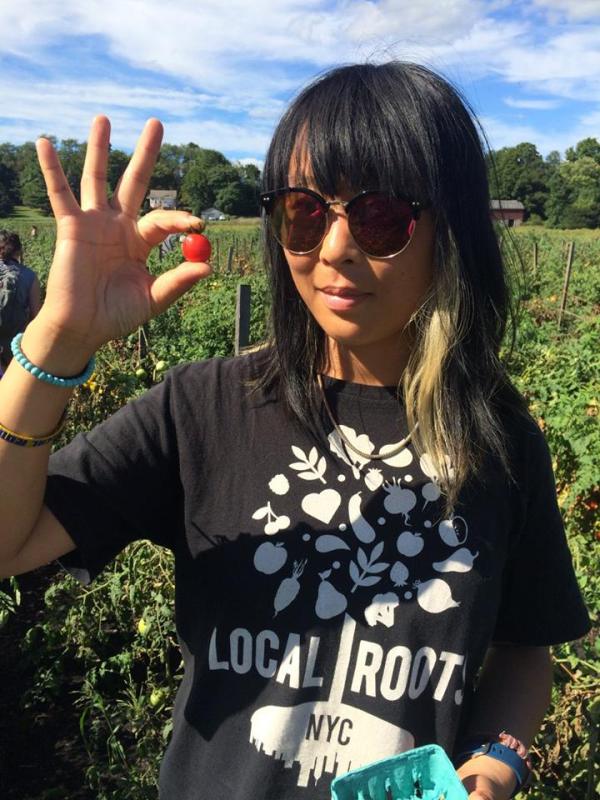
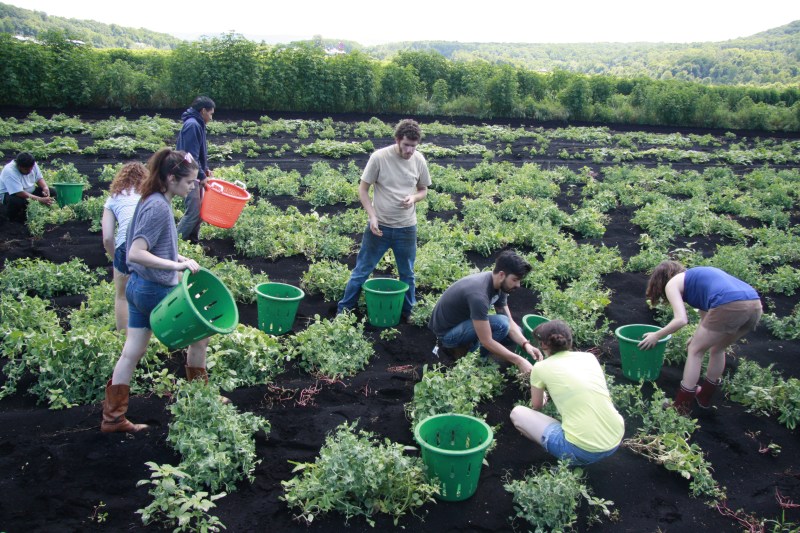
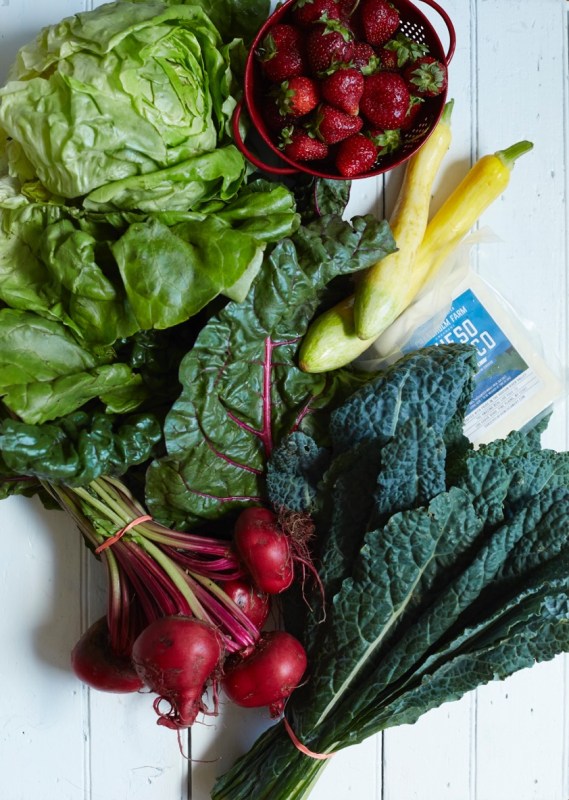
Wen-Jay Ying was raised in Long Island and worked her whole life to try to get into a good college. She ended up at Boston University to study psychology. When she moved back to New York City, she spent six years with the underground music scene as her social circle. Ying, who plays violin and bass guitar, and also sings, says that those years were “formative.”
“That’s when I fell in love with the idea of building community,” she told RealClearLife while sitting in her office in Brooklyn. “It was such a tight scene, it made it feel like you had a home here, you were able to dig your feet into the earth of New York City and plant your own seeds and make a name for yourself in the world, in the sense that you were actually part of New York City, you were not just a transient being here.”
Then Hurricane Katrina happened, and Ying contemplated heading down to New Orleans. But while at a music festival in Pennsylvania, she got called on stage to dance with the Flaming Lips (which was a longtime dream of hers). After the show, she was talking to the lead singer about her plan. And though he told her it was important to help others outside of her community, she should remember that there are people in her own city that need help. Ying thought about that a lot, and decided to join Americorp in New York. She worked for a nonprofit, Just Food, and learned about Community Supported Agriculture (CSAs) and local farms.
After Americorp, Ying worked for Red Jacket Orchards, but got laid off after a bad growing season. She felt like she was so close to knowing what her ideal job was, but it didn’t really exist in the real world. Her mom’s response was to tell Ying to start her own business. So she did.
“I made a business without any prior business model and not fitting it into the mold of what a business should be,” she said. Local Roots was formed in 2011, with New Yorkers in mind. This specific model of CSA had not been heard about before, and Ying felt lucky that the five farmers who agreed to work with Local Roots that year decided to “take a chance” with her.
Now, Local Roots supports over 15 local small farms and nearly 20 small-batch NYC producers. All the farmers are located within a two hour drive of New York. Most CSAs are volunteer-based, consumers sign up for six months, and you have to order a vegetable share, which contains vegetables for a household of about five people. But Local Roots is the only CSA that goes year round, and it is only a three-month commitment. If you go out of town for a bit, you can pause it and come back. You do not have to buy vegetables if you don’t want, and it is a one-stop grocery shop: You can get eggs, meat, fish, pasta, fermentation, vegetables, a “huge variety of stuff.”
Local Roots uses bars, cafes and offices as their markets. Ying did this because she wanted Local Roots to be “integrated into people’s social lives.”
“Food is a beautiful, vibrant connector in our society so we should also feel like that when we are going through the process of picking up our groceries,” she said to RCL. “So often people view grocery shopping as an errand and then view cooking as an errand. But we are changing that.”
Local Roots also takes the decision-making out of the consumer’s hands, so that they do not have to decide what to cook for the week. The weekly grocery list is curated with the farmers and producers, since they know what is best, and includes recipes that focus on that week’s grub.
As a female-owned company, Ying said that with everything happening in the country and the food industry, she feels really grateful to work in a place where everyone feels safe to be who they are.
“It is important to me to cultivate a work environment that just feels nourishing and very, very far from those moments that I’ve experienced in my former work experiences,” she said.
“I think being a business owner is a really beautiful and really, really hard experience,” Ying continued. “You feel emotions as such extremes, because it is so tiring and so exhausting and it really challenges you in so many different ways. But it has definitely made me understand myself better, and its also helped me understand my relationship with being in Asian-American.”
Ying said that she worked really hard at the beginning because she loved the work and felt really passionate about bringing local produce to New Yorkers in an easier way.
“But I am sure subconsciously I was also doing it to prove to my parents that I can work just as hard as they did when they first came to this country and also make as large of a footprint in my own community and industry as they did in theirs,” she said. “That’s been revealing itself the longer I own a business.”
This article was featured in the InsideHook newsletter. Sign up now.























